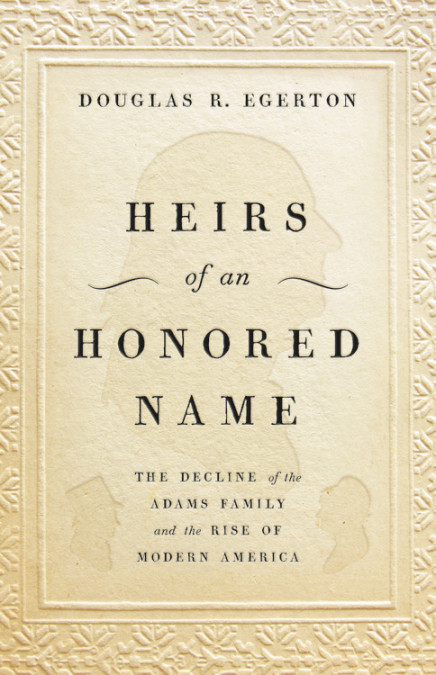Authors:
Historic Era: Era 4: Expansion and Reform (1801-1861)
Historic Theme:
Subject:
Fall 2020 George Washington Prize | Volume 65, Issue 8


Authors:
Historic Era: Era 4: Expansion and Reform (1801-1861)
Historic Theme:
Subject:
Fall 2020 George Washington Prize | Volume 65, Issue 8
Excerpted from the George Washington Book Prize finalist Heirs of an Honored Name: The Decline of the Adams Family and the Rise of Modern America, by Douglas R. Egerton (Basic Books).

Henry Brewer Stanton was the first to notice. The United States House of Representatives had just wrapped up debate on a resolution to thank American officers and soldiers for their "splendid victories" in Mexico, and John Quincy Adams, who had long denounced the conflict as a "most unrighteous war," had cast one of the few nays, voicing his disgust in an "emphatic manner and an unusually loud tone." Stanton, a reporter for the antislavery Boston Emancipator and Republican and the husband of feminist Elizabeth Cady Stanton, was sitting 20 feet from Adams when he observed the 80-year-old congressman suddenly make an "effort to rise," reaching out "with his right hand as if to take his pen from the inkstand."
Adams grew flushed, then paled and clutched the desk with a "convulsive effort" before sinking to the left side of his chair. Congressman David Fisher, an Ohio Whig, caught Adams as he fell, while Congressmen George Fries and Henry Nes, both of whom were physicians, rushed to his aid. "Mr. Adams is dying!" somebody shouted.
Both the House and Senate promptly adjourned, as did the Supreme Court, housed downstairs, but no one left the building. Many crowded in to see whether Adams yet lived. In a few "broken, disjointed and incoherent words," Adams mumbled something about his wife, and those in the chamber believed they heard him whisper, "My son, my son." Most of what he said next was hard to comprehend; some understood him to say, "This is the end of the earth. I am composed." Others thought him to murmur, "This is the last of the earth. I am content.”
The next morning, some four hundred miles to the north, Charles Francis Adams Sr., John Quincy's and Louisa's only surviving child, stopped by his Boston office at the Daily Whig and spied a telegraph sent by his friend, Congressman John Gorham Palfrey, dated the previous afternoon. "Here was a shock," Charles Francis scribbled into his diary. His father "was taken in another fit of paralysis and it was not thought he could survive the day."
Adams dashed home to inform his family and then caught the next train south. John Quincy had suffered a small stroke two years before but had quickly regained his health. "He has been the great landmark of my life," Charles Francis wrote. Although he was now forty-one and had been "accustoming myself to go alone," the son yet regarded his father as his "stay and companion."
Adams died that evening without uttering another sound, the speaker announcing his death to the